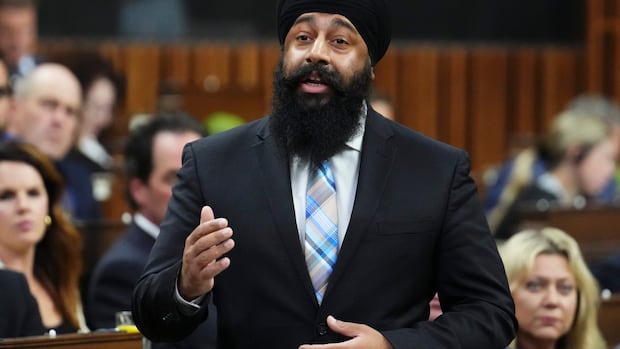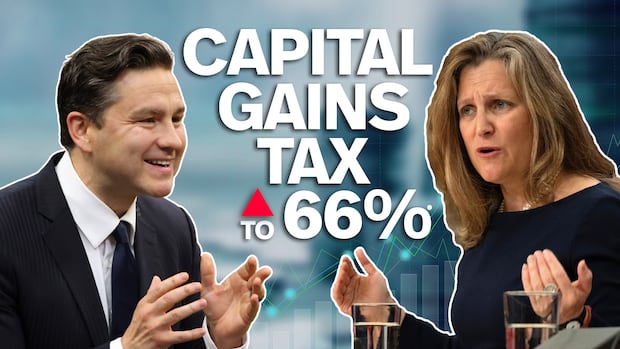The Conservatives are calling on the government to stop collecting tax on capital gains at the increased inclusion rate the Liberals put forward as part of last year’s budget.
Conservative finance critic Jasraj Singh Hallan argued the higher inclusion rate shouldn’t apply because it was never officially passed into law by Parliament.
“You are taking money from small businesses without the consent of Parliament and have created a tax-filing nightmare for hard-working Canadians across our country,” Singh Hallan wrote in a letter sent Tuesday to Finance Minister Dominic LeBlanc.
“As Minister of Finance, you have a responsibility to stop this job-killing tax hike before it does even more damage to our economy. If you refuse to do this, then at the very least, you must direct the Canada Revenue Agency to stop collecting this tax until after an election.”
Singh Hallan co-signed the letter with Adam Chambers, the Conservative critic for national revenue.
April’s federal budget announced an increase to the taxable “inclusion rate” on capital gains — the profits that individuals or businesses make from selling an asset like a stock or a second home.
The new rules increased the inclusion rate from one-half to two-thirds on capital gains above $250,000 for individuals, and on all capital gains earned by corporations and trusts.
Legislation to officially introduce the capital gains changes was before the House of Commons, but is now essentially dead after Prime Minister Justin Trudeau asked for Parliament to be prorogued.
But the Canada Revenue Agency is still collecting the tax on the increased inclusion rate, because the government passed a “ways and means” motion in Parliament.
“Parliamentary convention dictates that taxation proposals are effective as soon as the government tables a notice of ways and means motion; this approach provides consistency and fairness in the treatment of all taxpayers,” the Department of Finance said in a statement to CBC News last week.
The Liberals have argued that less than one per cent of Canadians are impacted by the increase to the inclusion rate, but others have disputed those numbers.
Economist Jack Mintz has calculated as many as 1.26 million Canadians would pay the higher rate at some point.
Business groups have been decrying the increase to the inclusion rate.
Dan Kelly, president of the Canadian Federation of Independent Business, argued on social media last week that the lack of certainty around the future of the inclusion rate is a problem.
“I expect small business owners and Canadians with capital gains will not have clarity for another year or more. This is deeply unfair and disrespectful to Canadians that have important transactions ahead,” he wrote.
The Department of Finance says the only real way to get back to that original inclusion rate is to wait for the next session of Parliament.
“Upon resumption of Parliament, if no bill is passed in the House of Commons, and the government signals its intent to not proceed with the proposed measures, the CRA would cease to administer them,” the department said.
Canada’s capital gains tax increase comes into effect on June 25. Andrew Chang breaks down some misleading claims about the changes coming from both sides of the political aisle and explains who is likely to pay the new tax, how much and how often. Does it really just hit the ultra-rich?



